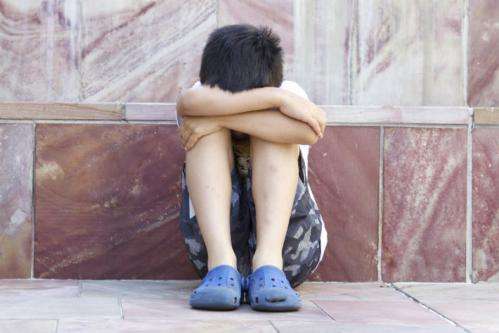Children's mental health key to future employment prospects

Children who experience emotional problems are at high risk of unemployment in early adulthood, according to a University of Stirling study.
The study also found this risk is even higher – and even more disproportionate to the rest of the population – during times of recession.
The researchers studied data from the 1980 UK recession, finding that the adverse impact of childhood mental health problems on employment prospects grew by 50% during this period.
They suggest that young people with a history of poor emotional health may also have fared particularly badly as youth unemployment soared in the aftermath of the 2008 recession.
Their study calls for the extension of childhood mental health care provision to address the problem.
Lead researcher Mark Egan, from the University of Stirling's Behavioural Science Centre, said: "Our findings point to childhood mental health as a key factor which shapes whether a young person will find a job. We now know that early life emotional problems have a substantial influence on productivity and employment prospects in adulthood. The economic benefit of extending childhood mental health services to address these problems early in life is likely to be substantial."
The need for improved childhood mental health services may be particularly timely if those with poor mental health were also disproportionately more likely to become unemployed during the recent recession.
"Our findings suggest that young people with mental health problems may be at particularly high risk of unemployment when an economy is doing poorly. We found this to be true in the aftermath of the 1980 recession and are now examining new data to test whether this was true after the 2008 recession", says Egan.
The study, conducted by Mark Egan, Dr Michael Daly and Professor Liam Delaney of the University of Stirling's Behavioural Science Centre, used data from almost 20,000 British children, drawn from the Longitudinal Study of Young People in England and the National Child Development Study.
The data was used to assess the mental health of British children and monitor them as they entered the labour force in the mid-1980s and 1970s respectively.
Children were categorized as being 'highly distressed' if they reported frequent feelings of worthlessness or depression at age 14 in the first study, or if they scored highly on teacher-rated measures of distress at age 7 and 11 in the second study. In both studies, children were monitored into young adulthood and their initial success in the labour market was examined.
Across the two studies, those rated as being highly distressed as children were 40% more likely to experience youth unemployment, compared to those who did not experience significant distress as children.
















